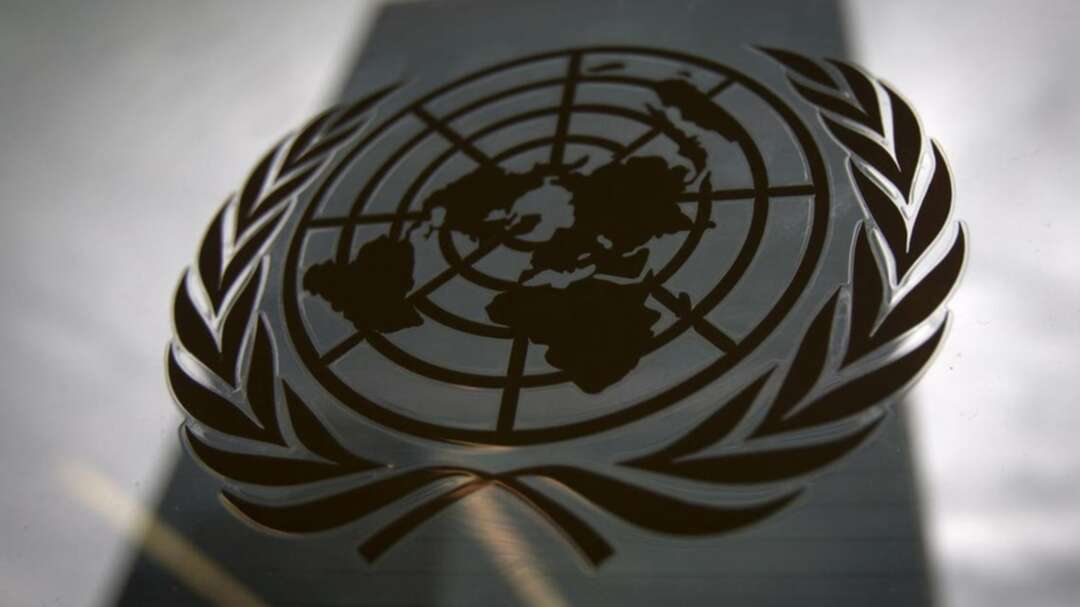-
Afghan civilian casualties down by 15 percent in 2020, UN report finds

The number of civilians killed and wounded in violence across war-weary Afghanistan fell by 15 percent last year compared to 2019, according to a United Nations report released Tuesday.
The UN Assistance Mission in Afghanistan and the UN Human Rights Office attributed the drop in civilian casualties in part to an apparent tactical change by insurgents to targeted killings, fewer suicide bombings and a stark drop in casualties attributed to international military forces.
Still, Afghanistan remains among the deadliest places in the world to be a civilian. A distressing feature of the conflict remains the disproportionate impact on Afghan women and children, who make up 43 percent of all casualties.
The attacks targeting civilians include assaults on members of the judiciary, media and activists. Also targeted have been religious minorities, especially the Shiite Muslim population, most of whom also belong to the Hazara ethnic group, and the Sikh population.
The overall number of civilian casualties in 2020 of 8,820 — including 3,035 killed and 5,785 others wounded — fell below 10,000 for the first time since 2013. Last year’s total was 15 percent down compared to 2019, the UN said.
 Security personnel inspect the site of a bomb attack in Kabul, Afghanistan, Saturday, Feb. 20, 2021. Three separate explosions in the capital Kabul on Saturday killed and wounded numerous people an Afghan official said. (AP)
Security personnel inspect the site of a bomb attack in Kabul, Afghanistan, Saturday, Feb. 20, 2021. Three separate explosions in the capital Kabul on Saturday killed and wounded numerous people an Afghan official said. (AP)Afghanistan has seen a nationwide spike in bombings, targeted killings, and violence on the battlefield as peace negotiations in Qatar between the Taliban and the Afghan government have stalled. It’s been over a month since the sides last met to discuss how to proceed.
Meanwhile, President Joe Biden’s administration is reviewing the US-Taliban peace deal that was signed February 29 last year. As part of it, Washington committed to a May 1 withdrawal of all foreign troops from Afghanistan.
Afghanistan peace negotiations between representatives of the Afghan government and the Taliban in Qatar began on September 12 but have failed to alleviate the scale of civilian harm — a key indicator of violence levels. Instead, there was an escalation of violence in the fourth quarter of the year.
For the first time since it began systematic documentation in 2009, UNAMA tallied an increase civilian casualty recorded in the fourth quarter compared with the third quarter. In addition, this period marked a 45 percent increase in civilian casualties compared to the same three months in 2019, especially from the use of improvised explosive devices and targeted killings.
In October, civilian casualties were the highest of any month in 2020, and in November UNAMA documented the highest number of civilian casualties of any November since it started systematic documentation in 2009. Alongside the overall increase in violence as the year ended, the population was confronted with a spate of targeted killings, referred to by many as “assassinations,” of civilians, including media, civil society activists, members of the judiciary and the civilian government administration, as well as civilian family members of combatants.
“2020 could have been the year of peace in Afghanistan. Instead, thousands of Afghan civilians perished due to the conflict,” said Deborah Lyons, the UN’s special representative of the secretary-general for Afghanistan. “This important report has the overriding objective of providing the parties responsible with the facts, and recommendations, so they take immediate and concrete steps to protect civilians. I urge them not to squander a single day in taking the urgent steps to avoid more suffering.”
 Afghan National Army soldiers keep watch outside of a military compound after a car bomb blast on the outskirts of Ghazni city, Afghanistan, on November 29, 2020. (Reuters)
Afghan National Army soldiers keep watch outside of a military compound after a car bomb blast on the outskirts of Ghazni city, Afghanistan, on November 29, 2020. (Reuters)The report blamed 62 percent of casualties on anti-government forces in 2020 with the Taliban responsible for most of them — 46 percent — and the Islamic State group responsible for 8 percent.
Pro-government forces caused a quarter of all civilian casualties, totaling 2,231, the report said. That includes 841 killed and 1,390 wounded, a decrease of 24 percent from 2019, with the Afghan national security forces causing most of these — 22 percent of the total.
While there was an increase in the number of civilian casualties that were unclaimed by any party and for which UNAMA could not attribute responsibility, the report found the Taliban caused 19 percent fewer civilian casualties than in 2019 and IS caused 45 percent fewer than the previous year.
Ground engagements were the leading cause of civilian casualties in 2020. They were responsible for 36 percent of civilian casualties, a slight increase compared with 2019. Next were suicide and non-suicide attacks using improvised explosive devices, which caused 34.5 percent of the casualties last year, a 30 percent decrease. Anti-government forces targeted killings caused 14 percent of casualties in 2020, up by 45 percent, and pro-government airstrikes caused 8 percent of casualties, down 34 percent.
“Ultimately, the best way to protect civilians is to establish a humanitarian ceasefire,” said Lyons, who is also head of UNAMA. “Parties refusing to consider a ceasefire must recognize the devastating consequences of such a posture on the lives of Afghan civilians.”
source: The Associated Press
Image source: Reuters
You May Also Like
Popular Posts
Caricature
BENEFIT Sponsors BuildHer...
- April 23, 2025
BENEFIT, the Kingdom’s innovator and leading company in Fintech and electronic financial transactions service, has sponsored the BuildHer CityHack 2025 Hackathon, a two-day event spearheaded by the College of Engineering and Technology at the Royal University for Women (RUW).
Aimed at secondary school students, the event brought together a distinguished group of academic professionals and technology experts to mentor and inspire young participants.
More than 100 high school students from across the Kingdom of Bahrain took part in the hackathon, which featured an intensive programme of training workshops and hands-on sessions. These activities were tailored to enhance participants’ critical thinking, collaborative problem-solving, and team-building capabilities, while also encouraging the development of practical and sustainable solutions to contemporary challenges using modern technological tools.
BENEFIT’s Chief Executive Mr. Abdulwahed AlJanahi, commented: “Our support for this educational hackathon reflects our long-term strategic vision to nurture the talents of emerging national youth and empower the next generation of accomplished female leaders in technology. By fostering creativity and innovation, we aim to contribute meaningfully to Bahrain’s comprehensive development goals and align with the aspirations outlined in the Kingdom’s Vision 2030—an ambition in which BENEFIT plays a central role.”
Professor Riyadh Yousif Hamzah, President of the Royal University for Women, commented: “This initiative reflects our commitment to advancing women in STEM fields. We're cultivating a generation of creative, solution-driven female leaders who will drive national development. Our partnership with BENEFIT exemplifies the powerful synergy between academia and private sector in supporting educational innovation.”
Hanan Abdulla Hasan, Senior Manager, PR & Communication at BENEFIT, said: “We are honoured to collaborate with RUW in supporting this remarkable technology-focused event. It highlights our commitment to social responsibility, and our ongoing efforts to enhance the digital and innovation capabilities of young Bahraini women and foster their ability to harness technological tools in the service of a smarter, more sustainable future.”
For his part, Dr. Humam ElAgha, Acting Dean of the College of Engineering and Technology at the University, said: “BuildHer CityHack 2025 embodies our hands-on approach to education. By tackling real-world problems through creative thinking and sustainable solutions, we're preparing women to thrive in the knowledge economy – a cornerstone of the University's vision.”
opinion
Report
ads
Newsletter
Subscribe to our mailing list to get the new updates!






















